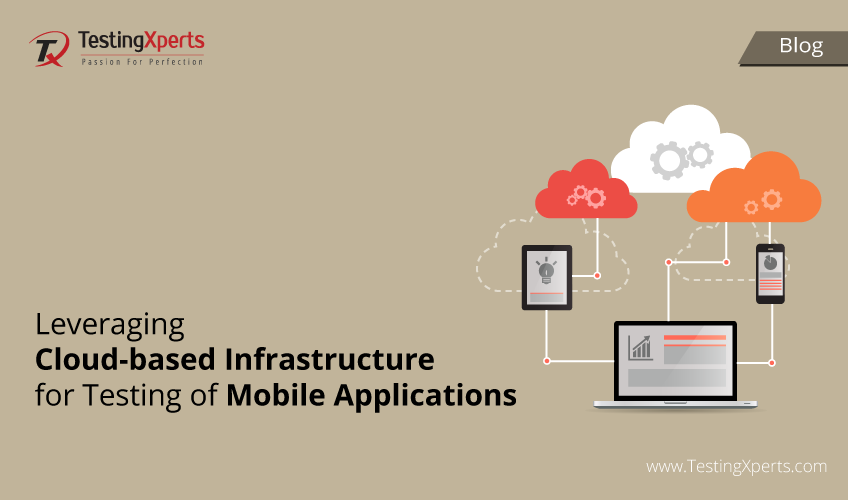Recommended Blogs
Leveraging Cloud-based Infrastructure for Testing of Mobile Applications

The velocity of mobile applications deployment is increasing each day. Organizations are striving to get those new applications/ features to market ahead of their competition. For this, testing the application quickly is crucial than ever. However, testers face numerous challenges such as unreliable testing infrastructure, distributed testing teams across cities and countries, agile development process necessitating continuous testing, and a plethora of testing devices in the market. Building all the required infrastructure and automated testing requires significant investment and effort.
Table of Contents
Cloud-based Infrastructure for Software Testing
A promising way to address this problem is to leverage cloud-based infrastructure for testing. Cloud-based service providers let you build testing environments quickly and cost-effectively, along with providing all popular mobile devices on the cloud. You can also run automated testing in the cloud which enables testers to run parallel tests on various devices at the same time, cutting down testing time considerably and reducing the application’s release cycle. Whether you need to extend an existing application or build something new, cloud-based resources can help you save time and money both.
Major benefits of leveraging cloud-based infrastructure for testing
1. Continuous access to resources
One of the major benefits of the cloud is the 24×7 availability of its resources. The cloud-based resources are available for testing by multiple teams around the clock, in contrast to potentially having shared access to current in-house infrastructure. The QA teams can have global access to testing infrastructure in different time zones or geographic regions, allowing for more test coverage in a 24-hour period.
2. Lower costs
Infrastructure and tool licenses costs are ramping up quickly, especially for larger teams. However, cloud-based infrastructure allows the organization to manage its expenses well and provide better results at low costs. The cloud also provides a near-rapid way known as Infrastructure as Code(IaC), to build a test bed without the effort and cost involved to build out the infrastructure yourself.
3. Promotes agility and collaboration
Cloud testing can boost agile standards by providing a platform that is inherently collaborative. Assets in the cloud are updated automatically, by which users can have the most recent information available immediately. Cloud-based tools facilitate better collaboration between local and distributed teams, promoting continuous integration and continuous testing.
Conclusion:
The evolution of cloud has made organizations realize the need for cloud as a platform or as an infrastructure. Cloud-based testing is offering several benefits to organizations as they move to agile processes. By integrating this approach while testing the mobile applications, teams can move more rapidly and achieve significant returns as a result. TestingXperts’ is a front-runner in enabling cloud testing services. Connect with us now and address all your QA challenges and pitfalls.
Discover more

